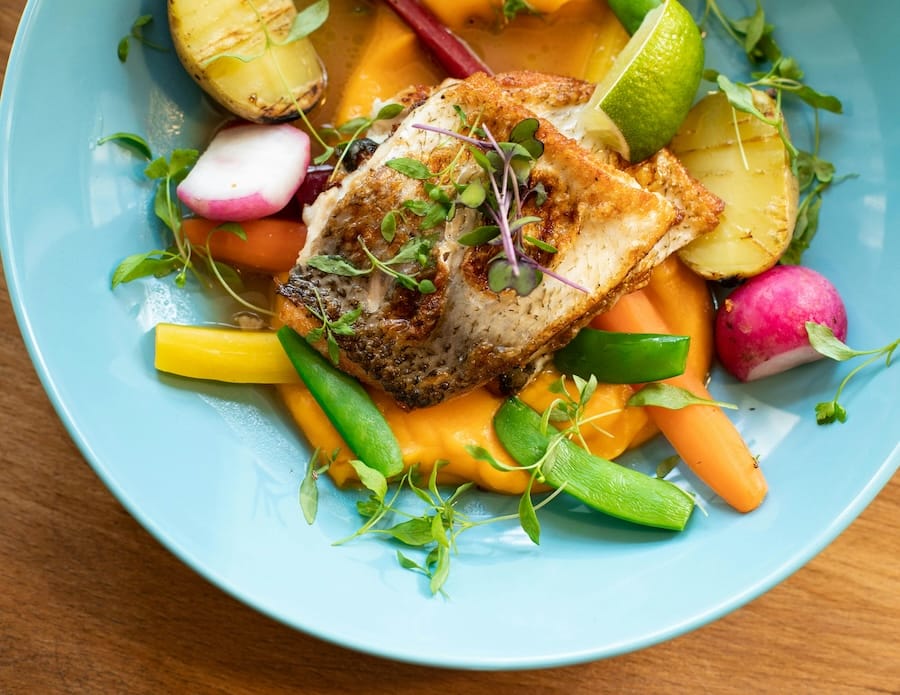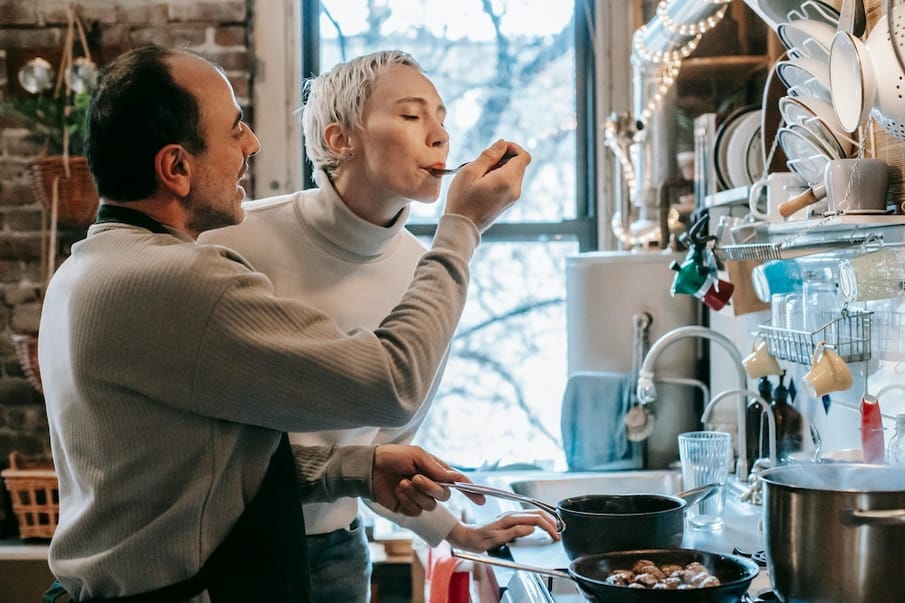Learn how to take care of your brain health now, alongside ways to protect it for the future
Whether it’s feeling sharp day-to-day, or protecting our precious memories as we age, brain health is front of mind for many of us. From getting a balanced plate to eating a rainbow of fresh produce, these are some of the ways you can look after your memory with the meals you eat.
Understand the gut-brain axis
You only have to think about the phrase ‘gut feeling’ to grasp the idea that our brains and our stomachs are intrinsically linked. “Research is beginning to understand the role that gut health has to play in reducing systemic inflammation, which also appears to have a role to play in the development of long-term cognitive decline,” registered dietitian Fiona Brannigan says.
Eating a nourishing and well-rounded diet is essential in terms of keeping our gut and brain, and therefore memory, in good shape. “By focusing on consuming a diet which is high in fibre, low in saturated fats, and reducing our consumption of processed foods, we can help minimise issues with not only our brain but our overall long-term health,” Fiona adds.
Embrace a Mediterranean approach
Fiona highlights how dietary philosophies such as the Mediterranean diet and MIND diet (Mediterranean-DASH intervention for neurogenerative delay – a diet that aims to reduce dementia and the decline in brain health) are useful to consider.
“These diets have gained interest in recent times as potential dietary mechanisms for improving cognitive health. And while research in this area is ongoing, it is a sensible approach to take due to its far-reaching benefits for overall health,” Fiona explains.
A Mediterranean diet is based around whole grains, fruits, vegetables, pulses, beans, nuts, and seeds with minimal red meat (twice a week at most). This way of eating also encourages two weekly portions of oily fish rich in omega-3 (such as salmon, sardines, or mackerel), and eating fat from unsaturated sources such as seeds, nuts, olives, oily fish, and avocados.

Don’t skip carbohydrates
Carbs don’t always get the best rep in our culture, but they are an essential building block of our diet, and crucial when it comes to our memory and overall brain health. “When considering how to improve our memory in the short-term it is important to remember that our brain requires approximately 120–130g glucose per day,” Fiona advises.
We get this glucose from consuming complex carbohydrates like oats, lentils, wholegrain rice and pasta, legumes, and some vegetables – and Fiona suggests eating some at every meal.
Forget so-called ‘superfoods’
There aren’t many months that pass without another food being heralded as a health hero, and while some ingredients certainly have potent benefits, the key is actually eating a big variety.
“There is no one specific food which will boost your memory. Blueberries, leafy green vegetables, and curcumin (found in turmeric), green tea, and oily fish have all been studied to determine if they help with cognitive decline, but at present the research is inconclusive,” Fiona explains.
Pack your plate with colour
Foods rich in flavonoids, polyphenols, and fibre, will all help nourish your body and mind both in the long and short-term. The best way to access flavones, polyphenols, and fibre is by increasing your intake of vegetables and fruits – the more colourful the mix, the better. Five a day is a good start, but in more recent years, advice suggests aiming for 30 plants a week. “Herbs and spices contain flavonoids and polyphenols, as do tea, coffee, and dark chocolate,” Fiona adds.
Up your hydration
It’s not just about the food you eat, but also the water you drink.
“Water maintains proper circulation, delivering essential nutrients and flushing out toxins. Being adequately hydrated helps with creating new neurons, the maintenance of existing ones, and the communication pathways between them, as well as improving short-term memory,” Fiona shares.
She points out that we require 35mls fluid/kg as adults up until 65 years of age, and after that 30mls/kg, which works out as aiming for eight cups of liquid per day. While water itself is one thing, it’s also good to remember that we can get hydration through fruit and vegetables, as well as hot beverages such as herbal teas.


Comments